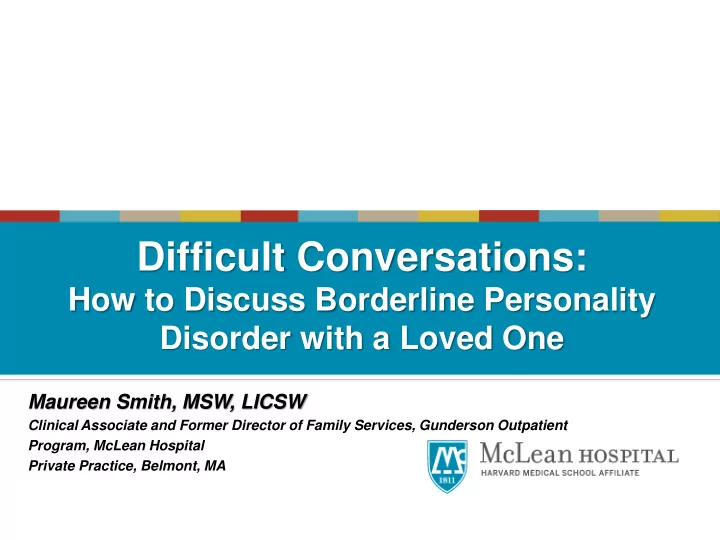

Difficult Conversations: How to Discuss Borderline Personality Disorder with a Loved One Maureen Smith, MSW, LICSW Clinical Associate and Former Director of Family Services, Gunderson Outpatient Program, McLean Hospital Private Practice, Belmont, MA
When you suspect a loved one has Borderline Personality Disorder Do not bring the subject up in a time of crisis Avoid outright “labeling” such as: “You are Borderline” or any “you are” statements Use a curious, “not knowing stance” Saying you understand is often felt as dismissive Always observe and describe in a non judgmental manner Be brief and clear Be prepared for push back! 2
When you feel treatment would help Again, do not raise "you need therapy" in the middle of an argument It will increase negative associations. Avoid "selling treatment" discussions, as you may increase resistance Again, using a curious, exploratory stance is not only tactical, but essential There are many types of treatment and it's often not clear what will be most helpful. Don't get discouraged by push back Plant the seed! 3
Resources There is a lot of disinformation on the internet! Always have good, reliable resources readily available, such as: National Educational Alliance for Borderline Personality Disorder: www.neabpd.org Family Guidelines by John Gunderson, MD and Cynthia Berkowitz, MD: http://www.borderlinepersonalitydisorder.com/family- connections/family-guidelines/ Tara4BPD: http://www.tara4bpd.org/ BPD Resource Center: www.bpdresourcecenter.org Borderline Personality Disorder Patient and Family Education Initiative: mcleanhospital.org/bpdinitiative 4
Recommend
More recommend